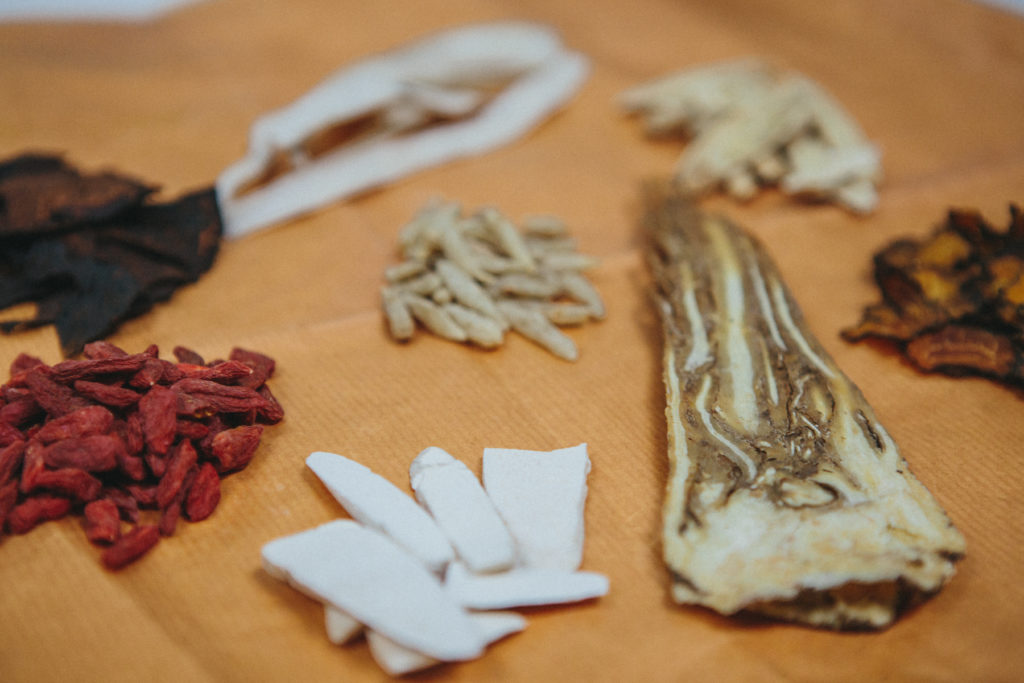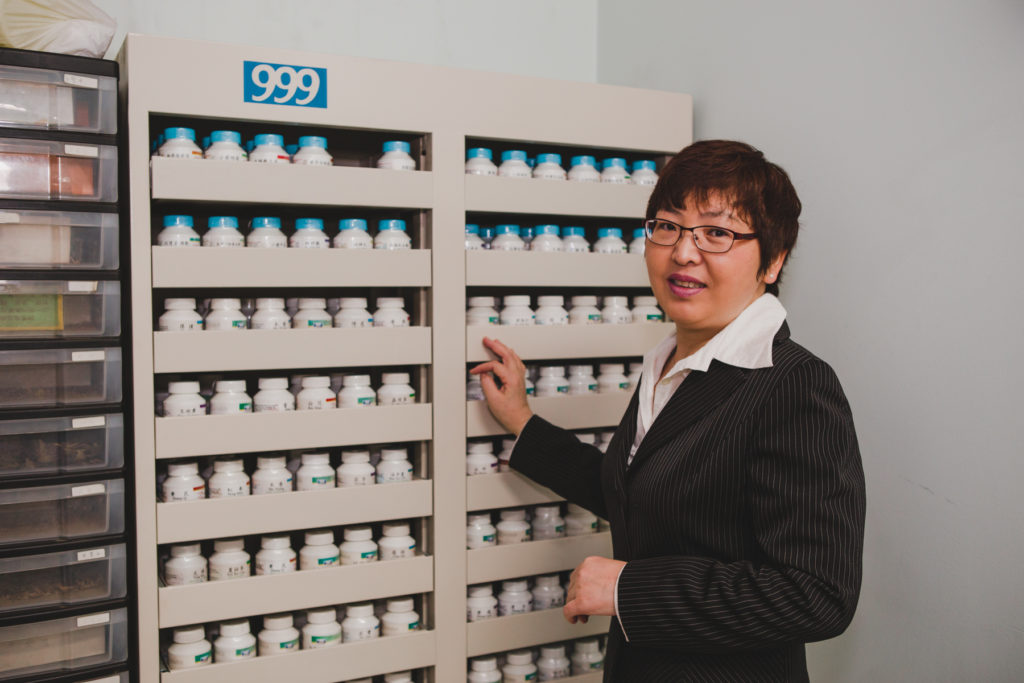Chinese herbal medicine is a long-standing and important component of Traditional Chinese Medicine. It employs the use of a wide range of herbs derived from roots, flowers, seeds, leaves, and bark, as well as certain minerals. The prominent Chinese pharmacopoeia Ben Cao Gang Mu lists over several thousand different medicinal substances. It further details their individual origin, features, taste, smell, use, and harvest period. However, only about 500 different herbs are currently in common use within clinics.
Chinese herbs are classified according to two dimensions: “properties” (of which there are four) and “tastes” (of which there are five). The four properties are: cold, hot, warm, and cool. The five tastes are: sweet, sour, salty, bitter, and pungent. Many herbs contain a mixture of tastes and therefore have different functions.
Herbs with cold or cool properties can treat heat-related symptom-complexes while herbs containing warm or hot properties can be effective for cold-related symptom-complexes.
Herbs that are sweet in taste may be used as tonics to nourish the body or to strengthen bodily energy. Meanwhile, herbs that have a sour taste are used as astringents and hemostatics and can be used to treat chronic diarrhea, over-sweating, and prolapse of internal organs. Herbs that are salty in taste can soften or clear stagnation of blood as well as soften and disperse hard lumps within the body. Herbs that are bitter in taste are used to eliminate heat and dampness. Herbs with a pungent taste can be used as diaphoretics and to regulate the flow of Qi and blood throughout the body as well as to treat exterior symptom-complexes caused by wind and cold.
With the prevalence of side effects in Western medication, more and more people are opting for herbal medication to relieve their afflictions. When prescribed by trained practitioners, Chinese herbal medication rarely employs the use of only a single herb to treat the target condition. Instead, the medicine is prescribed as a “formula”. A typically formula often contains 4-12 different kinds of herbs, although it is not unusual for them to contain more than 20 different herbs. Within the formula, the different herbs work in conjunction with each other to quickly and effectively achieve a balance of Yin and Yang. Side effects are rarely observed with Chinese herbal medicine and those that do appear are much milder than those typically seen with the use of Western medications.
Herbal formulas are available as pills, tablets, capsules, powders, or extracts. With the use of modern techniques, concentrated herbs are pre-made to decoction as a more convenient method for intake, eliminating the need to brew at home.


